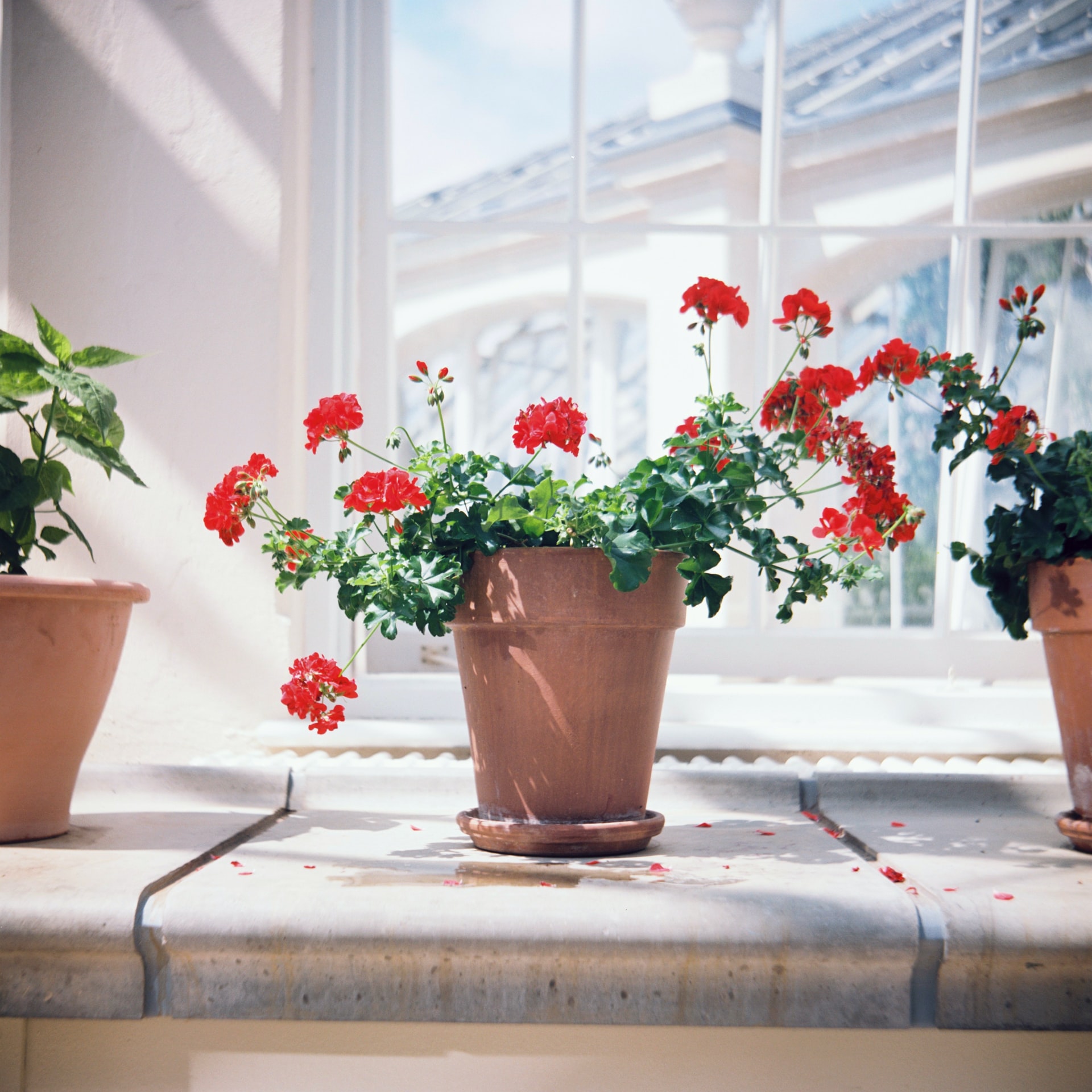Geraniums are popular plants used for bedding in gardens, in hanging baskets, or inside. They are pretty easy to grow as long as they get plenty of light and a temperature between 65-70 degrees Fahrenheit. They do best in well-draining potting soil and need at least 8 inches of space between other plants. Just don’t forget to water them!
So, why should you grow some geraniums? There’s plenty of reasons! Not only are they pretty to look at, but you can also use them to benefit your health. How? Read on to find out!
It’s Beneficial Essential Oil
According to Healthline writer Corey Whelan, geranium essential oil is often used in aromatherapy to treat various health conditions. It’s believed to have antioxidant, antibacterial, anti-inflammatory, antimicrobial, and astringent properties.
Its oil may be particularly beneficial in treating skin conditions, edema, nasal vestibulitis, infection, neurodegenerative diseases, menopause, perimenopause, stress, anxiety, depression, shingles pain, allergies, wounds, and diabetes.
Geranium contains more than 200 types of organic compounds. Its oil contains phytonutrients that allow it to benefit health in these ways. It contains terpenes, aldehydes, ketones, alcohols, and phenols. One of these phytonutrients is called geraniol. Geraniol contributes to the fragrance of many plants. It is a natural antioxidant that fights off free radicals that can damage cells and DNA.
Geraniol has also displayed antibacterial and antifungal activity against bacteria including Salmonella typhimurium, Candida albicans, and Saccharomyces cerevisiae. Geraniol may also help combat cancerous tumors by sensitizing them to chemotherapy agents. Geraniol is also in carrots, lavender, lemons, nutmeg, roses, and other fragrant plants.
Geranium leaves contain B vitamins and vitamin C. The plant also contains vitamin A. As for phytochemicals it contained the most in oxalates, flavonoids, and tannins.
There are more than 6,000 types of flavonoids. They are also powerful antioxidants that are anti-inflammatory and benefit the immune system. Tannins are astringents and are also in pomegranates, strawberries, nuts, herbs, spices, legumes, chocolate, and other foods.
How to Use It
Geranium oil can be diluted with a carrier oil to be used on the skin, but do a patch test as some can cause reactions.
To make it yourself, snip the leaves of the plant. Then, fill a jar halfway with a carrier oil like olive or sesame and submerge the leaves. Seal the jar and place it in a sunny windowsill for a week. After, strain the oil through a cloth and add fresh leaves into this new oil. Seal again and wait for an additional week. Continue this process for another three weeks, then it’s ready for use!
Keep in mind there are different species of geranium, so nutrient content can vary.

